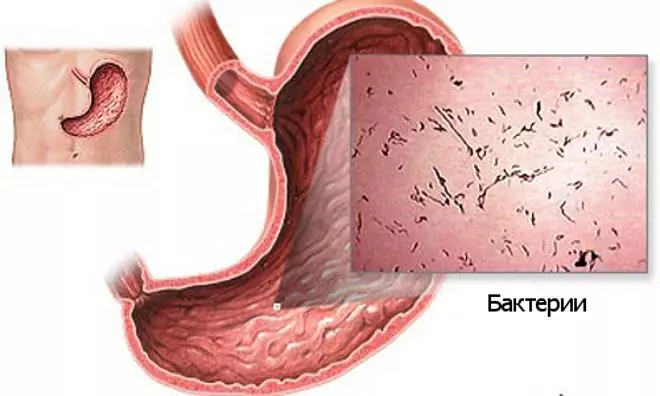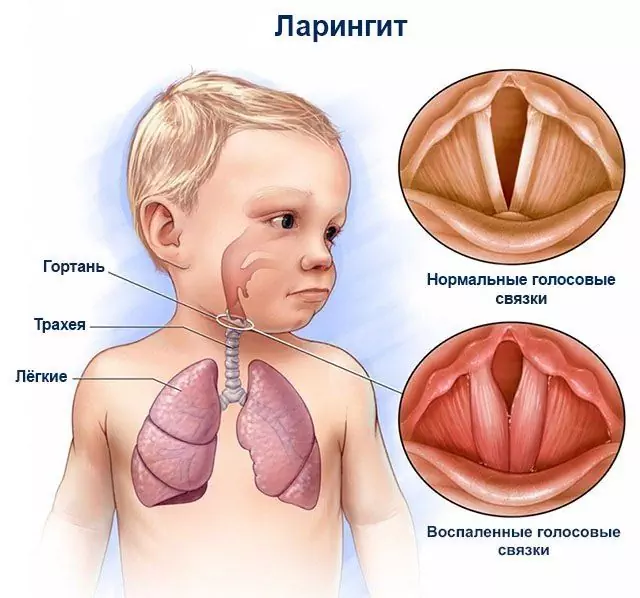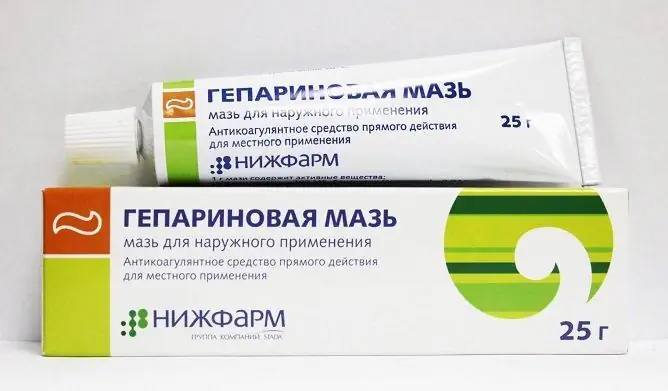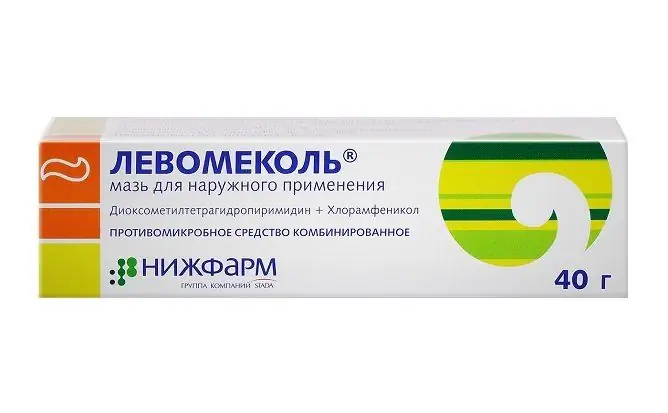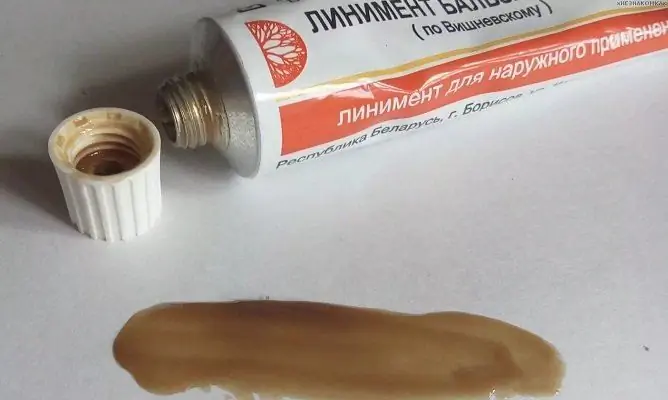- Author Rachel Wainwright wainwright@abchealthonline.com.
- Public 2023-12-15 07:39.
- Last modified 2025-11-02 20:14.
Zinc ointment
Zinc ointment: instructions for use and reviews
- 1. Release form and composition
- 2. Pharmacological properties
- 3. Indications for use
- 4. Contraindications
- 5. Method of application and dosage
- 6. Side effects
- 7. Overdose
- 8. Special instructions
- 9. Use in childhood
- 10. Drug interactions
- 11. Analogs
- 12. Terms and conditions of storage
- 13. Terms of dispensing from pharmacies
- 14. Reviews
- 15. Price in pharmacies
Latin name: Zinc ointment
ATX code: A.12. CB
Active ingredient: Zinc oxide (Zinci oxydum)
Producer: Samaramedprom (Russia), Yaroslavl Pharmaceutical Factory (Russia), Sintez (Russia), Moscow Pharmaceutical Factory (Russia), Tver Pharmaceutical Factory (Russia)
Description and photo update: 2018-25-10
Prices in pharmacies: from 15 rubles.
Buy

Zinc ointment is a dermatoprotective drug.
Release form and composition
The dosage form of the drug is an ointment for external use 10%: white or light yellow in color (25, 30 or 50 g in a can or tube, or 100 g in a can; in a cardboard box 1 can or tube).
Composition of 100 g of ointment:
- active substance: zinc oxide - 10 g;
- auxiliary component: petroleum jelly.
Pharmacological properties
Pharmacodynamics
Zinc ointment has anti-inflammatory, antiviral, wound-healing, antiseptic, astringent, drying and adsorbing effects. Relieves the symptoms of diaper rash and dermatitis, softens and has a protective effect. The active substance forms albuminates and denatures proteins.
Pharmacokinetics
When applied topically, the drug is not absorbed into the systemic circulation.
Indications for use
- diaper rash;
- dermatitis;
- skin damage (minor burns, cuts, scrapes);
- eczema;
- viral skin diseases.
Contraindications
- purulent-inflammatory diseases of the skin and subcutaneous tissues;
- increased sensitivity to the components of the drug.
Instructions for the use of zinc ointment: method and dosage
The ointment is applied externally.
Recommended dosage:
- diaper rash in children: the ointment is applied in a thin layer to previously washed and dried skin 2-3 times a day. The duration of treatment is up to 30 days. For prevention purposes, it is recommended to use the drug on skin areas that have been in contact with wet linen for a long time;
- skin damage (burns, scratches, cuts): it is allowed to apply a thin layer only on superficial and modified lesions, if necessary, apply a gauze bandage;
- photocontact dermatitis: the drug is applied in a thin layer to the affected skin area pretreated with an antiseptic solution 4-6 times a day;
- diaper rash: it is recommended to use the ointment several times a day, then lubricating the affected skin with baby cream;
- diathesis: the drug is used 5-6 times a day; before going to bed, it is recommended to rinse the skin with chamomile, in case of peeling - apply baby cream;
- herpes: the use of Zinc ointment in combination with Gerpevir is recommended; the funds are applied alternately, on the first day of the disease - every hour, then - every 4 hours;
- lichen: the drug is used in conjunction with the therapy prescribed by a specialist, 5-6 times a day;
- chickenpox: Zinc ointment is used to relieve itching 4 times a day.
Zinc ointment for children is also recommended to be used to prevent diaper rash in cases of prolonged contact with wet linen.
Side effects
When using Zinc Ointment, hypersensitivity reactions (itching, rash, hyperemia), as well as allergic reactions, may develop.
Overdose
There are no reports of cases of overdose with external use of the drug.
special instructions
The ointment is intended for external use only; be careful not to get it in the eyes. It is not recommended to use the drug on damaged skin areas.
Influence on the ability to drive vehicles and complex mechanisms
According to the instructions, zinc ointment does not affect the ability to drive vehicles and other complex mechanisms that require the speed of psychomotor reactions.
Pediatric use
There are no age restrictions on the use of Zinc Ointment for children.
Drug interactions
There is no information on interactions with other medicinal products.
Analogs
Analogs of Zinc ointment are Tsindol and Zinc paste.
Terms and conditions of storage
Store away from light, at a temperature not exceeding 25 ° C. Keep out of the reach of children.
Shelf life is 5 years.
Terms of dispensing from pharmacies
Available without a prescription.
Reviews of zinc ointment
Reviews of Zinc Ointment on the network are mostly positive. Patients note the effectiveness of the drug in the fight against skin problems, its low price, as well as the almost complete absence of unwanted effects.
Zinc ointment price in pharmacies
The approximate price for Zinc ointment is 50 rubles. for a tube containing 30 g of the drug.
Zinc ointment: prices in online pharmacies
|
Drug name Price Pharmacy |
|
Zinc ointment 10% ointment for external use 25 g 1 pc. RUB 15 Buy |
|
Zinc ointment 10% ointment for external use 25 g 1 pc. 19 RUB Buy |
|
Zinc ointment 10% ointment for external use 30 g 1 pc. RUB 21 Buy |
|
Zinc ointment 10% ointment for external use 25 g 1 pc. 22 RUB Buy |
|
Zinc ointment 10% ointment for external use 30 g 1 pc. RUB 24 Buy |
|
Zinc ointment 10% ointment for external use 30 g 1 pc. RUB 24 Buy |
|
Zinc ointment 10% ointment for external use 25 g 1 pc. 28 RUB Buy |
|
Zinc ointment 10% 30g 41 rbl. Buy |
| See all offers from pharmacies |

Maria Kulkes Medical journalist About the author
Education: First Moscow State Medical University named after I. M. Sechenov, specialty "General Medicine".
Information about the drug is generalized, provided for informational purposes only and does not replace the official instructions. Self-medication is hazardous to health!


